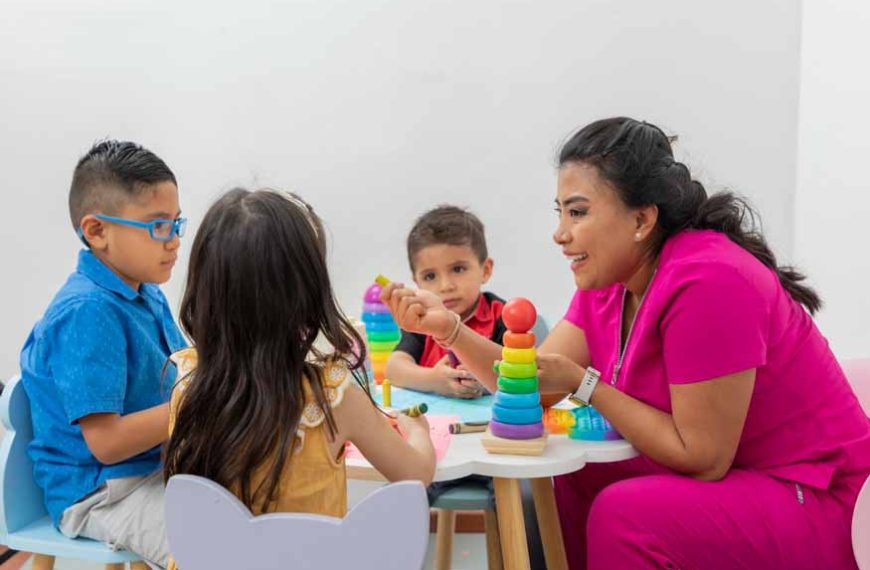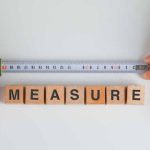The role of a preschool teacher is not just of a teacher as they have to don many hats in a child’s early education. Apart from a teacher, they also have to be a protector, a counsellor, a nurse, a role model and a storyteller, to name just a few. They help children process their emotions and alleviate fears and anxieties while supporting them in their learning and efforts to try new things. They also encourage them to recognise and pursue their interests and hobbies while constantly supporting them. In this blog, we will identify the roles of a preschool teacher, though they are just the tip of the iceberg. But before that, let’s understand preschool teachers better.
Understanding Preschool Teachers Better
Preschool teachers play a crucial role in the early development of children. They help lay the foundation for lifelong learning and social skills. Here are some key points about their importance, qualities, and duties:
Importance of Preschool Teachers
- Early Childhood Development: They support cognitive, emotional, and social development during the critical early years.
- Building Social Skills: They help children learn to interact with peers, share, and develop empathy.
- Fostering Independence: They encourage children to become more self-reliant and confident.
- Identifying Special Needs: They can spot early signs of developmental delays or learning disabilities.
Qualities of a Good Preschool Teacher
- Patience: Essential for managing young children and their varying needs.
- Creativity: Helps in designing engaging and educational activities.
- Communication Skills: Important for interacting with children, parents, and colleagues.
- Empathy: Understanding and addressing the emotional needs of children.
- Adaptability: Ability to handle unexpected situations and diverse learning styles.
Responsibilities of a Preschool Teacher
- Planning Lessons: Creating age-appropriate educational activities.
- Classroom Management: Maintaining a safe and organised learning environment.
- Monitoring Progress: Observing and assessing children’s development.
- Parent Communication: Keeping parents informed about their child’s progress and any concerns.
- Encouraging Play: Facilitating play-based learning to promote creativity and problem-solving skills.
Role of a Preschool Teacher
- Teaching Your Children
- Being A Role Model
- Caregiver and Protector
- Developing Social Skills
- Assessor of the Child’s Progress
- Communicator and Liaison
- Sensory Stimulation Facilitator
- Discipline and Emergency Handler
- Motivator and Creativity Promoter
- Holistic Development Specialist
The basic role of a preschool teacher is to facilitator learning and act as the link through which children are introduced to learning for the first time. They involve children with the basics of reading, writing, numbers and primary scientific concepts through interactive play and other effective and creative teaching strategies. This enhances cognition, comprehension and memory and sets the stage for future learning.
Preschool teachers are early role models for children as they lead by example and teach them basic positive principles such as honesty, compassion, respect and how to behave politely and courteously around people. Kids imbibe social and moral skills from an early age as they learn about collaboration, empathy and patience. Children learn a lot from observing and paying the most attention to the behaviour of their preschool teacher as for them, the teacher is respected and knowledgeable and has to be emulated.
Being away from home for the first time, a preschool teacher creates a comfortable atmosphere. They have to be guardians and nurturers by providing them with a safe and comfortable environment that makes the kids feel loved. The children’s health, seeing that they eat their regular meals, cleanliness, and safety all come under the purview of a preschool teacher. Helping them to adjust to the new educational setting as they may feel overwhelmed is another important role of a preschool teacher.
Children enjoy talking and playing with other children, and it is important for a preschool teacher to ensure that the children interact with one another kindly, respectfully, and with good manners. They have to ensure that no child is excluded and make it possible for all the students to be engaged in activities.
It is never-ending for the preschool teacher to analyse each child’s progress and understand their strengths and weaknesses, as well as areas that require improvement. Children grow at different rates, which assists the teacher in formulating many strategies and activities that will enable them to achieve their maximum potential.
Some children are extroverted, but some may be introverted. Monitoring their development enables preschool teachers to assess such children as possible learners who are behind their peers or those who need more support. This also helps them communicate effectively with parents regarding their child’s development and learning.
One more significant task of a preschool teacher is to ensure that communication between the school and the parents remains open. They are responsible for providing weekly feedback to the parents about their child’s development, behaviour, and any concerns they may have. They work hand in hand with the parents to improve the child’s education and overall development and help them understand how they can support learning and behaviour at home.
Apart from that, a preschool teacher ensures communication between the students and with their students. They teach them how to appropriately communicate their feelings and emotions, which develops their social skills.
To a large extent, preschool education involves sensory-based learning, so the role of a preschool teacher is to facilitate sensory stimulation. They engage students in myriad activities that use all five senses to help them understand and interact with their environment. Sensory activities promote the development of fine motor skills, memory, and cognitive development.
Preschool teachers must inculcate discipline by setting clear rules and instructions and making their expectations of the children very clear. This is the only way to establish a structured environment for the children to blossom. Age-appropriate strategies must be used to teach children how to follow rules. This not only helps in developing discipline but also teaches self-control and respect for rules among children.
Apart from that, a preschool teacher has to be adept at handling emergencies and ensuring the safety and welfare of the children in a crisis. They must know first aid, emergency procedures and efficient communication between parents and authorities..
The major task of the preschool teacher is to develop self-confidence in the children. They encourage the children to express their feelings, thoughts, and ideas. They raise their self-worth and image through the commendation of work done, however insignificant.
They also encourage the creativity and imagination of the children through many different activities and games that arouse their curiosity. They make sure the classroom always looks attractive and colourful which facilitates the development of imagination and innovation. This can also be done through storytelling or using puppets and props as it’s known to develop a child’s imagination and creativity.
One of the most difficult roles of a preschool teacher is being responsible for the holistic development of each child. It’s not only about teaching subjects and promoting cognitive skills, physical coordination, emotional skills or enhancing social skills. They are trained to understand each child’s unique developmental needs and adapt their methods accordingly. They have to provide routine and structure to the children and give them a sense of security to know when and what to expect. Children learn time management when they have a schedule, so preschool teachers also help them develop a strong foundation in the important life skill of time management.
Conclusion
It’s evident that the role of a preschool teacher is crucial. They juggle many roles to ensure the overall development of preschoolers and stay up to date with new methods and information to best help their young students. To understand the impact of preschool teachers on your kids, check out our blog, 5 Ways Preschool Teachers Impact A Child’s Life. For more information on your child’s development, nutrition, and learning, visit EuroKids Blogs. Also, don’t forget to check out EuroKids Preschools for the first step in your kid’s learning journey!
















